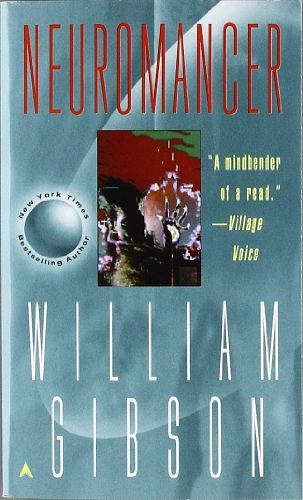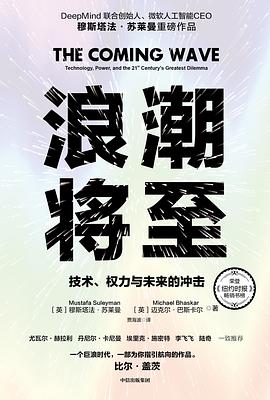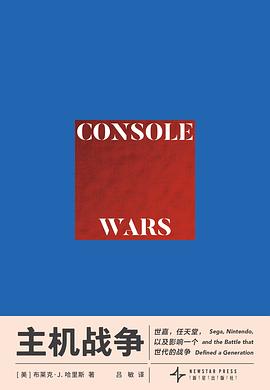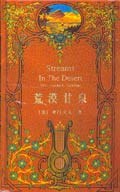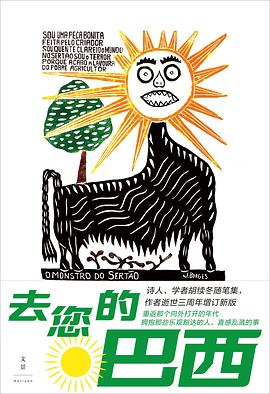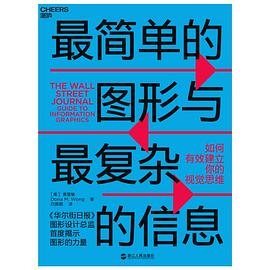内容简介
"Twenty years ago, it was as if someone turned on a light. The future blazed into existence with each deliberate word that William Gibson laid down. Neuromancer didn't just explode onto the science fiction scene. It permeated into our consciousness, our culture, our science, and our technology. The winner of the Hugo, Nebula, and Philip K. Dick Awards, Neuromancer showed us what we were capable of creating and what we were capable of destroying - and illuminated the dark corners of the path we were headed down." Today, we have this science fiction masterpiece to thank for the term "cyberpunk," for easing our way into the information age and Internet society. Neuromancer's virtual reality has become our own. And yet, William Gibson's vision still manages to inspire the minds that will take us ever further into the future.
......(更多)
作者简介
William Gibson is the author of Neuromancer, Count Zero, Mona Lisa Overdrive, Burning Chrome, Virtual Light, Idoru, All Tomorrow's Parties, and Pattern Recognition.
Biography
Science fiction owes an enormous debt to William Gibson, the cyberpunk pioneer who revolutionized the genre with his startling stories of tough, alienated loners adrift in a world of sinister high technology.
Gibson was born in Conway, South Carolina, and spent much of his youth in Virginia with his widowed mother. He grew up shy and bookish, discovering science fiction and the literature of the beats at a precociously early age. When he was 15, he was sent away to private school in Arizona, but he left without graduating when his mother died suddenly. He fled to Canada to avoid the draft and immersed himself in '60s counterculture. He married, moved to British Columbia, and enrolled in college, graduating in 1977 with a degree in English. Around this time he began to write in earnest, combining his lifelong love of science fiction and his newfound passion for the punk music evolving in New York and London.
In the early 1980s, Gibson met writer and punk musician John Shirley and sci-fi authors Lewis Shiner and Bruce Sterling. All three were blown away by the power and originality of Gibson's stories, and together the four men went on to forge a radical new literary movement called cyberpunk. In 1984, Gibson's groundbreaking first novel, Neuromancer, was published. Daring and revolutionary, it envisioned such techno-marvels as AI, virtual reality, genetic engineering, and multinational capitalism years before they became realities. Although it was not an immediate sensation, Neuromancer struck a chord with hardcore sci-fi fans who turned it into a word-of-mouth hit. Then it won the Hugo, Nebula, and Philip K. Dick Awards (the Triple Crown of Science Fiction), catapulting Gibson into superstardom overnight.
Even if he had never written another word, Gibson's impact would be clearly seen in the works of such cutting-edge contemporary authors as Neal Stephenson, Pat Cadigan, and Paul DiFilippo. But, as it is, Neuromancer was just the beginning -- the first book in an inspired trilogy that has come to be considered a benchmark in the history of the genre; and since then, Gibson has gone on to create even more visionary science fiction, including The Difference Engine, a steampunk classic co-authored with Bruce Sterling, and such imaginative post-9/11 cyber thrillers as Pattern Recognition and Spook Country .
......(更多)
目录
......(更多)
读书文摘
药力迅猛得如同高速列车,一股白热的光芒从前列腺周边攀上他的脊椎,短路的性快感照亮了他头骨间全部缝隙。每一颗牙齿都像一枚音叉,在他的牙槽里歌唱,音调精准无比,歌声清楚得犹如乙醇。在朦胧的血肉包裹之下,他的骨架被打磨得锃亮,关节也变得滑溜。沙暴从头颅底部席卷而过,一波一波的高强度静电在眼镜后面戛然而止,变作最纯净的晶体,不断生长……
“试试这个。”凯斯说。 他接过头带戴上,凯斯帮他放好电极。他闭上眼睛,凯斯按下电源钮。爱洛尔战栗了一下。凯斯断开连接。“你看见了什么,老兄?” “巴比伦。”爱洛尔悲伤地说,然后将电极递给他,一脚蹬出,又向走廊下面去了
......(更多)
